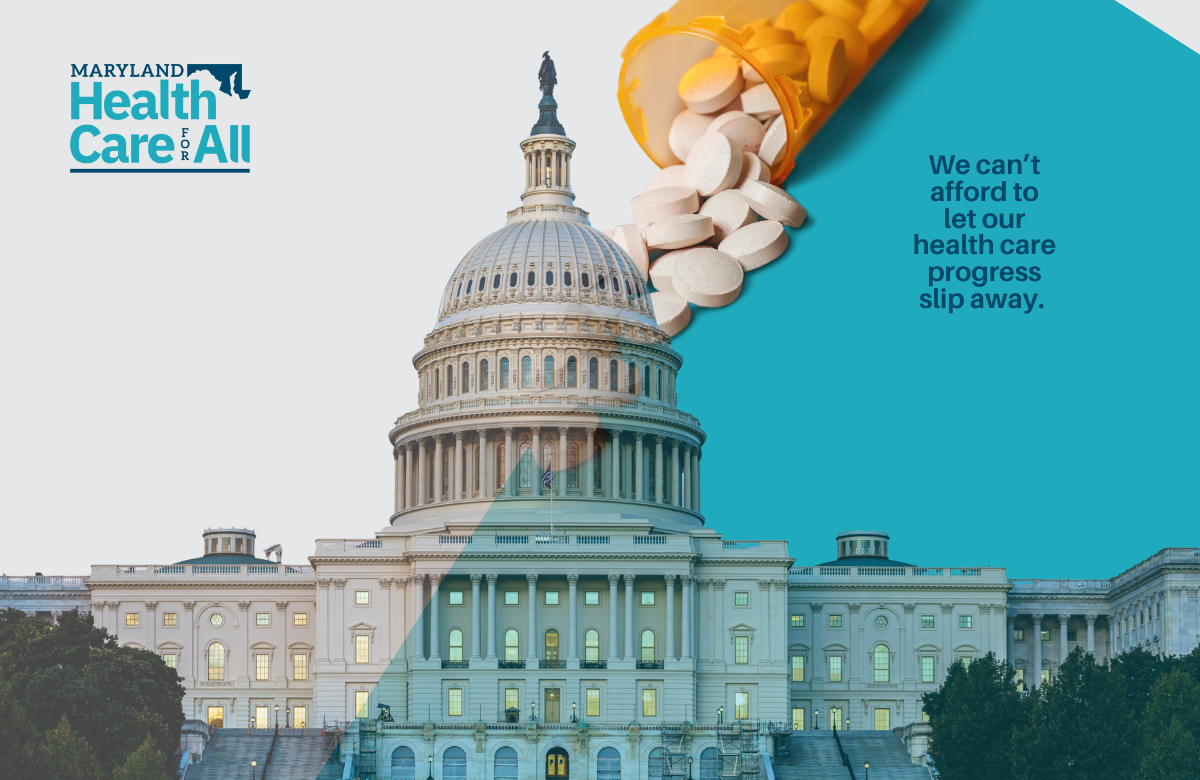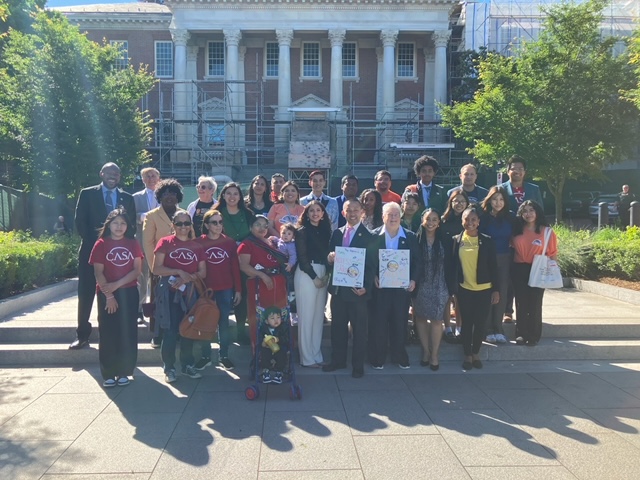Gazette.net
June 29, 2012
by Margie Hyslop
Maryland, which had forged ahead in planning a health benefit exchange, already has shared information with as many as 10 states on how to implement that key component of health care reform.
The action takes on added significance in the wake of the U.S. Supreme Court decision, in a 5-4 vote Thursday, to uphold the Patient Protection and Affordable Care Act.
As a recipient of an early innovator grant from the federal government, Maryland is required to share information and documents to help states plan, said Danielle Davis, spokeswoman and one of six employees already working for the Maryland Health Benefit Exchange.
Only 13 other states and the District of Columbia have established or are in the process of putting together exchanges, so state officials expect to get more calls now, Davis said.
The court upheld the act’s mandate requiring most individuals to buy health insurance, deeming it a tax that Congress is authorized to levy.
That leaves states about 18 months to figure out how to organize and operate health exchanges. A number of states have yet to set up exchanges; some were waiting for a Supreme Court ruling on the constitutionality of the health care act.
The court also ruled that states are free to decide whether to take advantage of additional federal funding that the act provides to expand Medicaid coverage to single adults whose income is 133 percent or less of the federal poverty level.
But the court struck down a provision stipulating that the federal government could take away all Medicaid funding if states did not expand Medicaid eligibility under provisions of the act.
Maryland’s exchange is to be a virtual marketplace, including private insurers, where individuals and small businesses can compare and buy insurance plans.
The state already has a lot of the hardware it needs to run its exchange, said Ritu Agarwal, director of the Center for Health Information and Decision Systems at the University of Maryland’s Robert H. Smith School of Business.
And Maryland is looking at computer applications to run the exchange and “pulling together plans on how to roll out information to consumers,” Agarwal said. The information is important because many consumers may know little about how to evaluate and buy insurance.
Maryland was one of three states that in April sent health benefit exchange leaders to a development conference held by the business school’s center. It focused on electronic marketing plans, governance and technology infrastructure.
The center — established to assist in understanding and using best practices for developing, governing and operating health exchanges — has another conference scheduled for Sept. 19 through 21 at Gaylord National Resort and Convention Center at National Harbor in Oxon Hill, and already two states have signed up, Agarwal said.
“I expect phones will be ringing very soon” with states calling to register, Agarwal said Thursday.
Maryland officials are working on an application now for federal funds to build the state’s exchange, including its information technology, hardware, rules and policies, Joshua Sharfstein, secretary of Maryland’s Department of Health and Mental Hygiene and a physician, said Thursday.
Legislation signed into Maryland law this year requires the Maryland Health Care Reform Coordinating Council to select the state’s benchmark for plans in the exchange, which must comply with state and federal laws, by Sept. 30.
For the first two years states will be allowed to set their own essential benefits; after that, federal health officials may set some standards, Carolyn Quattrocki, executive director of the Governor’s Office of Health Care Reform, said Thursday.
The new Maryland law also establishes requirements for health insurance carriers that want to participate in the exchange and requires the establishment of “navigator” programs for small group and individual markets.
The navigator programs are aimed at reaching people without health insurance and making it easy for them to determine whether they qualify for plans, and to move from one plan to another as needed.
“The exchange bill that passed this year is a national model — it goes beyond creating a minimal exchange and focuses on making health care affordable,” said Vincent DeMarco, president of Health Care For All, a coalition established in 1999 to advocate for expanding health care coverage.
The Maryland law also gives the state negotiating leverage by allowing the exchange to tell companies they need to meet certain requirements to participate, DeMarco said.
The federal law calls for states to establish the health benefit exchanges by 2014 or participate in a federal exchange.
Maryland’s exchange might be available to individuals and small businesses before that date, according to the office of Lt. Gov. Anthony Brown, who has overseen its development.
The state expects to get between $500 million and $1 billion annually in federal subsidies to help pay for health insurance for residents whose income is between 133 percent and 400 percent of federal poverty levels, Sharfstein said.
Annual operating costs will be the state’s responsibility, and a coordinating committee will propose options for paying to operate the exchange next year, Sharfstein said.
He said he did not know yet what the annual operating costs for the state’s exchange would be, but he noted that Massachusetts has spent between $20 million and $30 million per year to operate an exchange.
“If we’re spending a small amount of money to get an exchange and getting 500 million to 1 billion [dollars] annually, it is a good deal for Maryland,” Sharfstein said.
Under the act’s Medicaid expansion provisions, several million dollars are expected to come to Maryland to pay for extending Medicaid coverage to adults whose income is at or below 133 percent of the poverty level, Sharfstein said.
The state now receives about $4 billion annually to cover those qualified for Medicaid with incomes at 116 percent of the poverty level.
In radio interviews Thursday, U.S. Rep. Andrew Harris (R-Dist. 1) of Cockeysville predicted that individuals who qualify for Medicaid coverage under its expansion through the act will have the same difficulty finding doctors to treat them that individuals on Medicaid do now because the reimbursements to physicians are low.
Maryland has received more than $34.4 million in federal grants to help establish its health benefit exchange, which is part of about $13.7 billion in federal funds.
The Affordable Care Act already is benefiting some Marylanders, including seniors who are getting prescription drugs because of federal aid tied to the law, young adults who can continue to be insured under their parents’ health plans and high-risk patients who otherwise would not be able to get insurance, Sharfstein has noted.
Staff writer Daniel Leaderman contributed to this report.
mhyslop@gazette.net
Last modified: July 11, 2012




